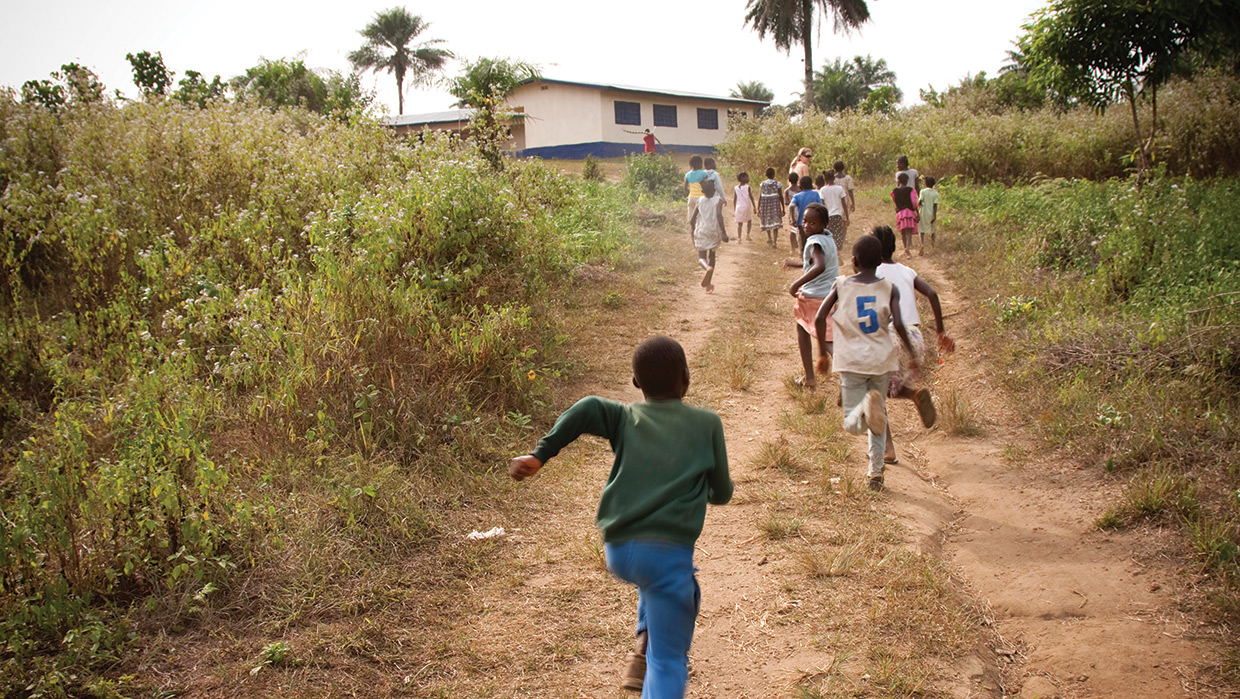Journalist Kathryn Joyce caused a stir this year with her book The Child Catchers, a sweeping indictment of the evangelical overseas adoption movement. Joyce claimed that much faith-based adoption is corrupted by trafficking, patriarchy, and bad theology. On top of her report, covered on The New York Times's front page, the number of adoptions by Americans has declined by 62 percent since 2004, even while UNICEF reports there are still at least 13 million children worldwide who have lost both parents.
Evangelical Christians are an adoption-happy bunch, because we were adopted once too. A family that welcomes needy children into a loving home provides a potent symbol of the in-grafting gospel. Yet we know all too well the gap between how things should be and how things are. Orphanage horror stories are sickeningly common. In 2010, 10 U.S. missionaries were charged with trafficking 33 Haitian children into the Dominican Republic. One of the world's largest sex abuse scandals took place at a Canadian orphanage run by the Christian Brothers until the late 1980s. Then there's the case of the vanishing orphanage: In a Kenyan village, a Christian orphanage hosted church leaders from Colorado. On an unannounced follow-up visit, one leader discovered the orphanage was a "highly sophisticated web of lies" that used fake staff and "rented" children.
Further, some government leaders and researchers believe orphanages don't address the systemic issues underlying orphan care. Rwanda, for example, had one of the largest concentrations of orphans—about 1 million—after the 1994 genocide. Since then, tens of thousands of Rwandan children have successfully moved into extended family and foster care. Next year, Rwanda aims to close all of its institutional orphanages as a reaffirmation of traditional village and family-based care for orphans.
Amid fresh doubts about orphanages, what can Christians, who are told to "look after orphans . . . in their distress" (James 1:27), learn? The answer is complicated—there is no silver-bullet solution for the challenge of orphan care. But first, we should remember that nothing is worse for a young child than the death of a parent.
Instead of pushing for orphanage shutdowns and halts on adoptions (as many governments have done after fraud and bad outcomes for children in institutions), we as the American church can help provide the best tailor-made option for each orphan.
1. For some children, this will mean staying in an orphanage. Richard McKenzie, a California economist who grew up in an orphanage, found from surveying 2,500 alumni of 15 U.S. orphanages that they outpaced the general population in almost all social and economic indicators. His findings corroborate the Duke University Positive Outcomes for Orphans study, which found positive results among orphans in Africa and Asia.
"We're not saying kids should be in institutions," Kathryn Whetten, a lead Duke researcher, told media. "[But] they're not necessarily a bad option. We need to look at [orphanages] as feasible options for communities that are overwhelmed."
2. For some children, this will mean being reunited with extended family. The Chikumbuso Women and Orphans Project, a faith-based nonprofit in central Zambia, won the 2012 "Best of Zambia" award for bringing together orphans, widows, and grandmothers for comprehensive support. Partnering with U.S. church leaders, it provides in-country care through education, skills training, and widows' microenterprise. In Tanzania, the African Orphans Relief Project seeks to stop dependence on adoption fees and donations altogether by sustaining itself through agriculture and brick-making. American churches can support similar, reputable programs that assess and place children in programs suited to their specific needs.
3. For some children, this will mean being adopted by families overseas. Most CT readers probably know a family or church member who has adopted a child (or 3, or 6), giving them a hope and a future by doing so. Christians who do not feel called to adopt can support those who do by welcoming adoptive families into the local church, setting up adoption-support funds, and walking alongside couples with "special needs" adopted children.
4. Ultimately, orphans reflect a broken world—young children were never meant to face life alone. To this end, American Christians can help solve the orphan crisis by addressing one of its major causes: parental death due to treatable disease. Africa is projected to gain another 1.3 billion people by 2050. But HIV/AIDS, malaria, and tuberculosis will leave many children as orphans. While a beautiful symbol of the gospel, adoption doesn't address the problem of parents dying prematurely. We can support nonprofits that do so even while we remain zealous about overseas adoption.
Timothy C. Morgan is CT senior editor, global journalism.










